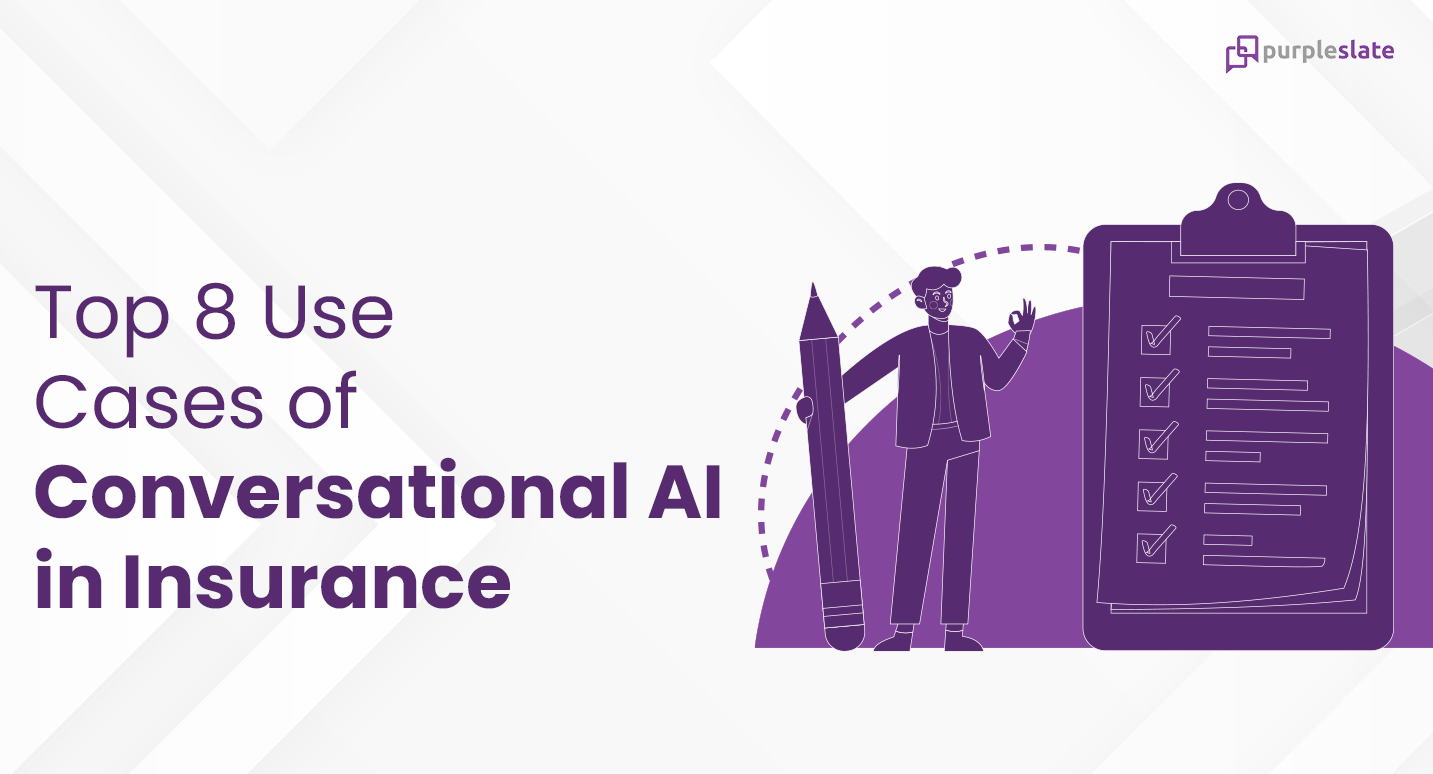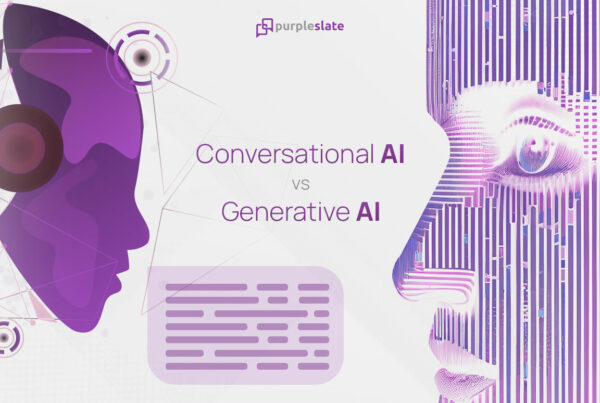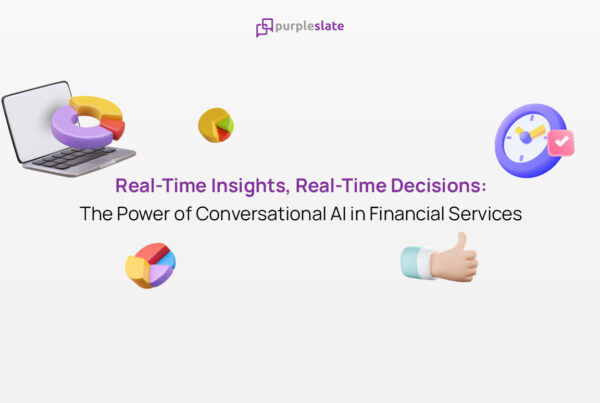
Introduction
Conversational AI solutions improve customer experience and enhance customer satisfaction by automating conversation and have found massive success in the insurance industry. They offer human-like interactions and maintain friendly, personalized experiences They can learn and develop based on previous interactions without human intervention. They can comprehend dialects, synonyms, and even multiple languages.
It can be deployed to serve as the end consumer’s personal manager, besides offering valuable insights that companies can make their products and services more relevant and personalized.
Here are some of the top use cases for deploying Conversational AI (CAI) in the insurance domain.
Policy Servicing
Customers can inquire with smart assistants powered by CAI about the different types of policies, match features to their needs, compare premiums and eventually find the right policy. The assistants act as an advisor with questions that go back and forth and suggest the policies that will fit the customer’s specific needs. It can augment actual agents’ productivity, as they are able to retrieve information about coverage clauses, term limits, renewal processes, and other insurance-related details within a minute. It handholds the policyholder to go through the entire insurance purchase journey themselves. It can guide clients through the purchasing process, bypassing the need to traverse a menu and bring them directly to the desired product.
Claim Settlement
CAI assistants have the capability to automate the claim process, making it a lot faster and more efficient. It can instantly access the customer’s information from the company database. It takes customers through the process of filing and obtaining claims more swiftly and seamlessly compared to waiting for a service representative. It enhances the customer experience while considerably lowering the time required for the entire process.
Customer Engagement
CAI assistants provide answers to trivial questions and repeated FAQs on products and policies which are considered hectic and mundane tasks for live agents. Timely answers to FAQs can impress customers and attract them into buying insurance products. With dynamic questions and answering schema, most of the initial queries can be solved by the assistant. Human agents can focus on real problems or higher-order tasks, where they are needed the most while CAI assistants take care of mundane transactional tasks.
Lead generation
CAI assistants can intuitively segment customers into different categories depending on factors such as age, risk, income group, and job stability. It helps capture the full context of a potential consumer’s requirements. It facilitates lead profiling and better conversion rates for the sales teams. It can perform a critical part in scoring leads and ensuring that only qualifying leads are shared with the sales team. It cuts back on waiting time and long queues to access a live agent.
Opportunity for cross-selling and up-selling
CAI can make relevant product suggestions which are extremely important for efficient cross-selling in insurance. Integrated with learning models and recommendation systems that logically guess product categories, CAI becomes a must-have tool to promote sales growth. Remembering the profile of the customers and the product bought by them earlier, CAI can recommend the right products for cross-selling and up-selling. It converts the opportunity for cross-selling and up-selling to a sale with a higher probability.
Customer support
CAI makes customer support available all the time across channels like Web portals, Mobile apps, WhatsApp, social media chats, etc. It provides immediate response, personalized experience, and 24X7 support. CAI suggests real-time answers to human agents when they’re on the call with customers. It has cognitive Q&A capabilities that can find answers from unstructured documents, website pages, scripts, PDFs, Word, etc. It can intuitively hand off the query to a human agent in real time and is capable of scheduling calls and online meetings with human agents.
Parting Notes
Conversational AI is a solution that has inbuilt capabilities to execute a variety of tasks.
- Proactively guide customers
- Sell different insurance schemes
- Generate new opportunities
- Retain customers through cross-selling and up-selling
- Improve customer experience multifold
The list is not exhaustive and the miracles of CAI have to be explored further. The advent of ChatGPT has opened the window of Artificial Intelligence, NLP, NLU, and NLG to mankind on a never-before-scale. The insurance industry will benefit heavily from such smart assistants who have an innate capability to learn, empathize, and at the end of the day help both customers and human agents with their tasks. Interested to see a smart virtual CAI assistant in action for the insurance industry? Check out our webinar to know more.




